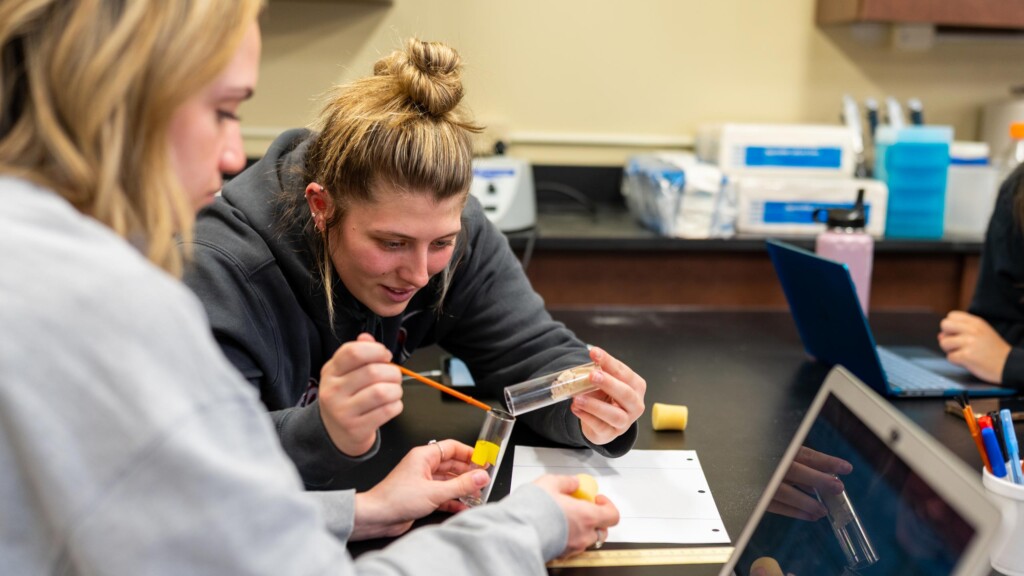Overview
- Degree Level
- Undergraduate
- Degrees Offered
- Bachelor of Arts, Bachelor of Science
- Department
- Biology
- school/college
- College of Arts and Sciences

Biology at its broadest scope is a natural science which involves the study of life. While pursuing a Bachelor of Arts or Bachelor of Science degree at Arcadia University, you explore the core sciences of general biology, evolution and population biology, comparative anatomy and physiology, genetics, cell biology, molecular biology, and ecology. Through collaborative and inquiry-based learning you have many opportunities to conduct research, co-author and present published studies, and intern at respected regional companies.
Your understanding of modern biological principles will be strengthened through the cognate areas of Chemistry, Mathematics, and Physics. You are taught by accomplished faculty who advise you in building a plan of study that meets your particular career goals through a range of biology-related electives or by venturing outside the sciences with art, communications, or business electives. You engage in many integrative opportunities as you study biology at Arcadia including:
The Bachelor of Arts in Biology is more liberal arts based. There are more options to take courses in the humanities or social sciences.
The Bachelor of Science in Biology is oriented toward in depth science and mathematics classes. This degree typically leads to medical school or other graduate degrees.
Students with an undergraduate degree in Biology from Arcadia have gone on to pursue a variety of careers including academics, dentistry, environmental consulting, forensic science, genetic counseling, medical dosimetry, nursing, occupational therapy, optometry, pharmacy sales, public health, biomedical and other types of research, teaching, veterinary medicine, and working as medical scribes, pharmacists, physician assistants, physical therapists, and physical therapy assistants.
Elective Course
Examine the structure and ecology of freshwater ecosystems. You will study the political, social, and economic aspects of aquatic resources management.
Many students are drawn to the field component of this course where the classroom moves outdoors to explore resources management of aquatic systems.
Elective Course
This course is a biomedical study of the structure and functions of mammalian cells, tissues, and organs at the microscopic level.
Many of our students are on tracks in the biomedical sciences and appreciate learning about, and exploring in the laboratory, tissue structures within the human body.
Elective Course
In this course, you will focus on animal behavior from an evolutionary perspective, exploring how animals process and respond to environmental stimuli.
You can enjoy learning about patterns of animal behavior and engaging in research in the lab component of the course.
Elective Course
Explore immunotherapy and targeted-drug design while learning about causes of cancer at the molecular level and cutting-edge therapies to treat the disease.
Elective Course
While studying at the molecular, cellular, and systems level to examine the mechanisms through which the nervous system mediates behavior, you can learn about the complexities of the human brain and nervous system. In the laboratory component, you will study the anatomy of the brain in the laboratory, and discuss nervous system disorders and treatments throughout the course.
